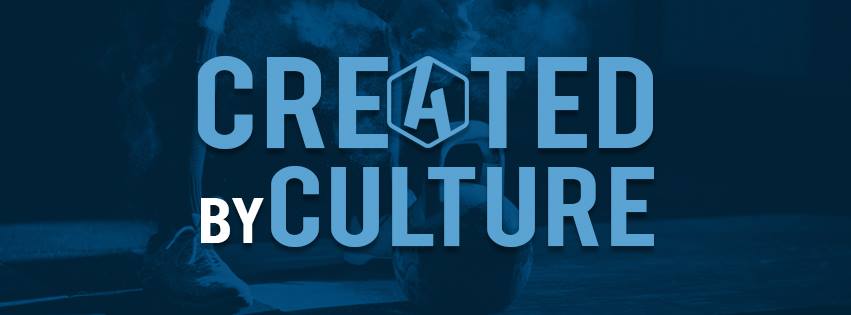It was a bit before 6:30am one Monday morning, right before we were to lift our Salisbury University Field Hockey Team, when I noticed a few Field Hockey Athletes that had looked to have been there for at least 30 minutes practicing on their stick work.
A few of them were dripping in sweat and breathing heavy, while others seemed to just be “going through the motions,” they seemed like they were just there because everyone else was.
This was only my 2nd week working with the team so I assumed that this was a mandatory pre-lift ritual, so I brushed it off and went into the weight room to go about my day.
After the lift I spoke with the Head Strength Coach about what I had seen. I asked him if it was normal for teams to come in early to practice before a lift.
He smiled and said, “If they want to win a Championship, then yes.” He went on to mention that his job was much more then just making them stronger, faster and more injury resilient in the weight room.
He had a much more meaningful job then just that.
His job was to mentor, teach and instill within his athletes the key characteristics to be successful in life, not just sport.
The key characteristic that I had walked into to see was the development of daily habits.
During our conversation, he noted that the goal was not to make the pre-session stick work training mandatory, rather, it was about them creating their own standards and their own habits to be great.
Setting Standards and Habits
A few weeks before I started with the team there was a meeting that included setting their own standards and goals for the season.
Once their goals were decided on, the team decided on what their standards to achieve these goals would be. They decided on what habits should be executed, and measured daily, to successfully bring them closer to their goals.
They set their own standards on sleep time, nutrition, water consumption, mindset, and practice time.
Once the standards were developed, their strength coach dropped a bug into one of his captains ear’s noting that they need to find a way to make it easy for the athletes to get their 30 minutes of stick work in a day (mind you this was out-of-season, so it was all to be done on their own).
The captain then ran with the idea and began to show up 15 minutes early before lifts to practice.
Then she would go on to invite a few girls to join her.
Then a few girls would just join out of fear of being left out.
Then it became a staple in their culture.
The team felt that if you didn’t show up 30 minutes before for extra work then you weren’t focused on the teams goals.
This 30 minutes of extra work became a habit for the team that all players felt was mandatory, although it was always voluntary.
Some athletes resented waking up 30 minutes earlier for practice, but over-time you noticed it became easier.
What started off as 10 minutes early turned to 15, and then 30, then 45.
Overtime, the athletes not only began to build the habits to be successful in themselves, but they even spread the habits to those around them.
3 Ways Coaches and Parents can Help their Athletes Develop Successful Habits
1. Start by setting clear goals. Once the goals are set, ask the athletes how they can obtain these goals. What are the right stepping stones to achieve their goals? And from there, what habits can they embark on daily (and measure daily) to achieve their goals?
2. Hold athletes accountable but still allow for failure. Not every athlete will “buy-in” to the habits that are set, and that’s okay, that’s what we want. As a Coach, or parent, you shouldn’t step in and scold the ones that are resistant. Instead, have a talk with the captains or the more dedicated. Explain that as a leader it is their responsibility to ensure that their whole team is on the same page. Allow them to problem solve the situation so that they can grow as a leader.
3. Preach a “character first, athlete second mindset.” What this means is as Coaches our goal is to develop the persons character first, so they may be successful in all avenues of life, and the athlete second. It’s much bigger then wins and loses, it’s about developing successful adults one day.
3 Ways Athletes can Develop Successful Habits
1. Set clear goals and define how you will achieve them. Once you know how you can achieve those goals, measure them daily.
2. Talk to successful people, or study successful people, on what daily habits they embarked on to be successful.
3. Self-reflect often! Look at yourself in the mirror and ask, “am I doing all I can every day to be even just 1% better each day?” If no, challenge yourself more. If yes, challenge yourself even more.
5 Habits That we Have Found in Successful Athletes
1. They never miss a training session
2. They train year around, in-season, out-of-season, or injured. They NEVER allow themselves to take steps backwards, only forward every single day.
3. They take ownership of their training. (They contact us directly for a make-up if they must miss)
4. They take their eating and sleeping just as important as their training and practicing.
5. They give 100% in everything. School, training, games, practice, etc. Effort is not something you turn “on” or “off” as you desire. Effort is something that you give 100% of the time in EVERYTHING that you do.
Other articles you may find interesting..
5 Characteristics of All Successful Athletes
If Kobe Bryant Could Teach our Youth 1 Lesson of Today
